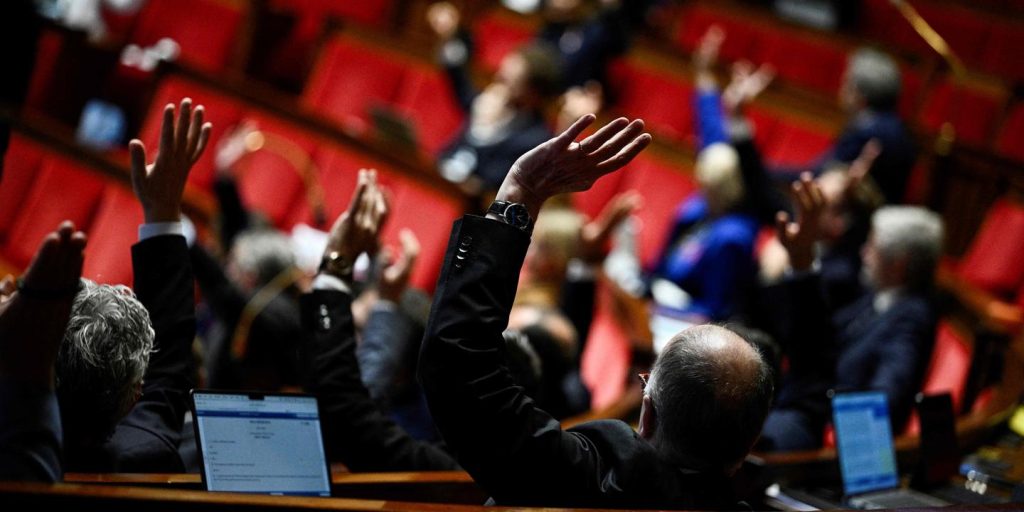The National Assembly has ultimately rejected the exceptional surtax on large companies proposed by the government in its 2025 budget plan, with members of the government camp and the National Rally voting against the article after the tax was significantly strengthened by an amendment from La France insoumise (LFI). The “exceptional contribution on the profits of large companies” is intended to contribute to the 60 billion euros in savings that the government hopes to achieve with its 2025 budget. It is supposed to be implemented for two years, generating eight billion euros in 2025 and four billion in 2026. The contribution, which is expected to affect around 450 companies according to the government, works by adding different surcharges to the corporate tax they must pay (which is currently at 25%) based on the year and the company’s revenue.
However, an amendment from the left increased the tax rates for the first year, raising the rate to 40% for companies with revenues between 1 billion and less than 3 billion euros, and to 55% for those with revenues of 3 billion euros or more. This was a significant increase compared to the government’s original plan. Minister of Budget Laurent Saint-Martin criticized the amendment, saying it would extract nearly 13 billion euros more from companies, potentially causing companies to leave the country. President of the finance committee Eric Coquerel of LFI argued that it was irresponsible to ask workers to work two more years of their lives while companies that had accumulated billions in profits were given tax breaks.
Socialist Philippe Brun rejected the accusations of the amendment being confiscatory and temporary, calling them false. He argued that the amendment was only for a single year. On the other hand, Right Republican deputy Philippe Juvin criticized the amendment, describing the budget as an “enterprise of demolition.” In the end, members from the government coalition, the National Rally, and the UDR group led by Eric Ciotti voted to ultimately reject the article, removing it from the text. The final version may still change during the parliamentary process with the Senate or through the use of article 49.3.
The rejection of the surtax on large companies highlights the divide within the National Assembly between those who support increasing taxes on corporations to fund government initiatives and those who believe it would harm the economy. The debate also raises questions about tax policies, with the left advocating for higher taxes on profitable companies to fund social programs, while the right argues that it would drive businesses away. The rejection of the amendment shows the challenges of finding a balance between generating revenue for the government and supporting economic growth.
Overall, the rejection of the surtax on large companies in the 2025 budget plan by the National Assembly reflects the ongoing political and economic debates in France. The decision to reject the surtax highlights the differing views on tax policy and economic priorities within the government and the opposition. The debate surrounding the surtax also raises questions about the impact of such measures on the economy and businesses. It remains to be seen how the government will address the revenue shortfall resulting from the rejection of the surtax and whether alternative measures will be proposed in the future.


